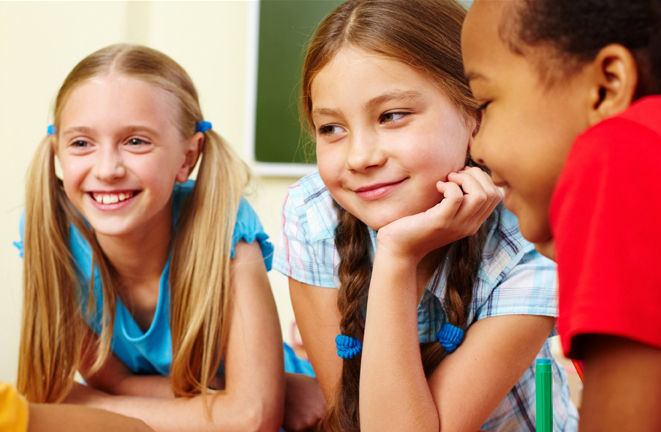Study: Generation Z wants more relevant news about school, less about celebrities
- Kristy Gillentine
- Mar 27, 2017
- 3 min read

Our future depends on “Generation Z," and preferred news topics for teens and tweens show us we’re in good hands.
Kids want to know what’s happening in the world and in their own communities. They want their voices to be heard. They care least about celebrity news and most about education news.
“News and America’s Kids,” a report released by non-profit Common Sense Media this month, details where 853 surveyed children ages 10-18 get their news, how social media is a critical source of information and how they perceive the accuracy of the news and feel about the issues covered. These are things often studied as pertaining to adults but rarely addressed with teens and even more rarely with children as young as 10.
The most important topics to kids:
Education and schools (76%),
Technology (72%),
Things affecting their neighborhoods (67%) and
The environment (64%).
The least important topics: celebrities/entertainment (34 percent) and politics (40 percent).

According to the study, kids like news for the same reason grown-ups do—because it makes them feel smart and knowledgeable.
Parents, educators and journalists alike may be excited and intrigued by the findings, which include:
48% say following the news is important to them
50% say following the news helps them feel prepared to make a difference in their communities
“It directly affects me. I like to know what’s happening,” one child said in an interview.
In terms of where teens and tweens most often get their news, social media would be a solid assumption. But the study shows otherwise, with family coming in as the top source.
61% got news often from family, teachers or friends
45% got news often from online media or apps
23% got news often from traditional media (television, radio and print newspapers)
The biggest difference between tweens and teens in the above findings were that younger kids (ages 10-12) were much less likely than those ages 13-18 to use online and social networking sources for news, and they’re much more likely to get news from teachers, other adults and friends than their teen counterparts. Combining all digital sources, 55 percent of teens get news online “often,” compared to just 25 percent of tweens.
“I want to get a variety of thoughts and a variety of things that I can read about,” one child said. “We’re a lot smarter than people think, and we know more than people think,” another said.
The same trend applies to kids’ preferred source of news. Overall, online is the preference for a majority (39 percent) of children surveyed. If you break it down by age group, social media is the No. 1 preferred news source for teens, but it falls behind family and TV for tweens. Also, while family members still rank high as a preferred news source for both groups at 23 percent overall, teachers and other adults are preferred by only 5 percent of all respondents, which rank them lower than friends (8 percent).
To find out where on social media kids are getting their news, the study first had to learn which social media platform kids most commonly use. The answer: YouTube at 69 percent, followed by Facebook, Instagram and Snapchat, which all each used by about half of the children surveyed. Twitter trails these at 29 percent.
Across all social platforms, the presence of kids ages 10-12 is much lower than that of teens, but the tweens who are there are getting news at similar rates as the older kids.
Looking at where on social media kids prefer to get news and news headlines:
44% prefer Facebook
21% prefer YouTube
11% prefer Twitter
10% prefer Instagram
8% prefer Snapchat
2% prefer Reddit
1% prefer Tumblr
Now that the survey has been done and the findings are out, parents, educators and journalists can use them to help children. Majorities of kids think the media should show more people their age, rather than grown-ups talking about them, and they think the news media has no idea about the experiences of people their age.
“The majority of the news we see is from adults’ perspectives,” one child said. “When there’s something that’s really important to be focused on, they don’t really think about the kids,” another said.
Kids want and can be more involved in making and consuming news. Here’s how:
Schools, spotlight your students rather than your administrators.
News organizations, speak to children to get their opinions on the stories you cover and other story ideas you may be missing.
Parents, follow the news with your kids and ask them how they feel about it.

Comments